

When you play an MMO, any MMO really, there are a few standard classes that you think of. You have the warrior, which is the go-to character for nearly any newbie, and then you have the casters who work their magic on the battlefield (and off it). Then of course there are the rangers and hunters that stand alongside the casters, working their own brand of DPS magic. From wizards, to rogues, and everything in between, gamers have enjoyed taking on a ton of different personas over the years, perhaps enjoying the benefits of classes that they could never embrace in real life. Seriously, when was the last time you got to shoot fire from your hands in real life? Other than that one time in college chemistry that you’ll never tell another soul about because it probably counted as a felony?
With all of these classes, there is one that is often forgotten about, one that rarely gets the credit that it deserves, and one that we honestly couldn’t live without. We’re talking of course, about the bard, one of the most underappreciated classes in MMO history, otherwise known as the Bard. To be perfectly honest, the first time a Bard appeared in an MMO happened to be in 1999’s EverQuest, despite it being a popular D&D class. That should tell you how underappreciated the class is, or perhaps how unwilling the developers of Neverwinter Nights were to complete the coding necessary for ‘Inspire Courage’ to play a role in the typical party dynamic. In any case, the bard eventually became part of MMO culture, to a point, but where did it come from exactly?
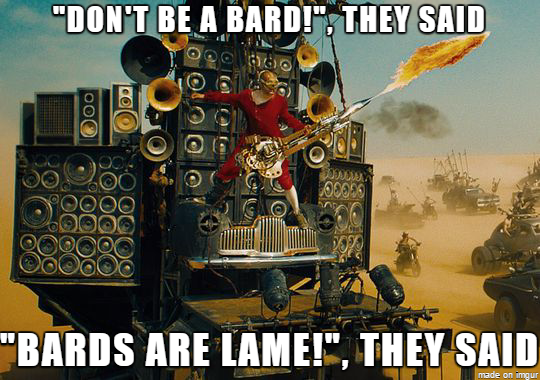
If you’re even a mild fan of the music playing, sex having miscreant of the MMO world, you’ll be glad to know that he (or she, or they) had their roots in actual history. The word comes from the Scottish Gaelic language, and it was originally a slang for a traveling musician, or rather, a vagrant. To be honest, it wasn’t the kindest of words at the time, but eventually it became more romanticized and honestly, who wouldn’t want to be a bard? Admittedly, the real world bards were not much like their MMO counterparts in that they did not play magical tunes, nor did they have control of the elements. Their playing could inspire morale, of course, and they were outstanding storytellers. With all of that going for them, it really shouldn’t be a surprise that they didn’t remain a part of history for too terribly long.
It all started again in the first edition of Dungeons and Dragons, which was released in 1974 by TSR. In the beginning, Bards were a special class and you couldn’t just create one at the outset like you can today. In fact, it was a prestige class. To become one, you had to start as a human or half-elf, and you had to raise your ability scores up pretty high. In fact, they would look something like this:
Strength 15+,
Wisdom 15+
Dexterity 15+
Charisma 15+
Intelligence 12+
Constitution 10+
If you’re a regular MMO player, these stats might not look like anything special, but considering the length of most campaigns and your limited opportunities to level up stats, it made the bard pretty much inaccessible during a normal game.
Assuming you were able to overcome the hurdles presented by the leveling system, you would need to start as a fighter, and then, after your 5th level, dual-class as a thief, then dual class again as a druid before level 9. Once you cleared that hurdle, you could be a bard, but you would always primarily be a druid. Quite frankly, it would be easier to just play a guy or girl with a lute and an affinity for storytelling, everyone would know what you were going for anyway.
As you stepped into the role of a bard, you had certain druid spells and could choose any neutral alignment. It was definitely a versatile class, and in later editions of the game, it became a starting option, free of the druidic restraints.
There were several MMO’s before EverQuest, contrary to popular belief, but it really was one of the first games to actually feature a playable bard class. Unlike with D&D, you could start as a bard right off the bat, but once again, the class was pretty much completely overlooked in favor of the others, which admittedly looked more exciting. What many fail to realize is that bards are necessary for tasks like crowd control, buffs, and of course raining elemental fire down on enemies during raids. Could other classes do this? Absolutely. Were they anywhere near as fun as wielding a lute and raining death down on your enemies with the power of music? No, not really.
An additional perk was that the bard could activate several different songs at the same time, making for a very effective buff dispenser. Having several of them in your raid would increase the chances of success. Of course, the bard is more of an advanced class, and it can’t be played by just anyone. You see, being a bard means stepping back and letting someone else take the credit for the killing blow. You might be an integral part of the raid, but there’s a good chance that you won’t be standing up front with a broadsword beating the ever loving crap out of the raid boss. On the upshot, you get to sing about the person that did, so there is that, right?
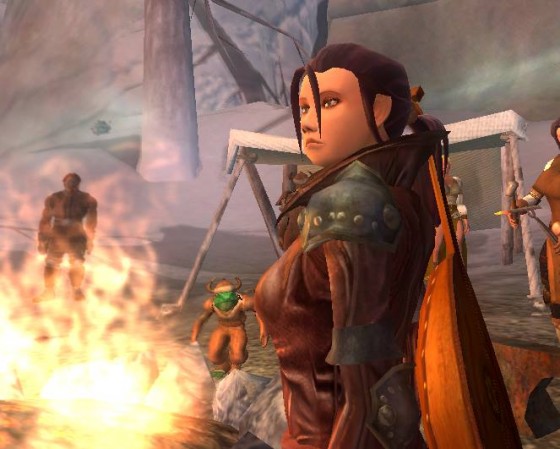
In EverQuest 2 the Bard class still existed, but it had been split into two so as to cater to the good and evil alignment. The ‘Good’ alignment had the troubadour, and the evil alignment had the dirge. Something important to note is that every race in EverQuest 2 could be a bard, whether you played a frog, a Sarnak, human, or barbarian. It could make for some really amusing combinations, particularly if you wanted to play a Sarnak with a lute. Amusingly, EverQuest 2’s lower graphic settings removed the lute graphic from the animations, which caused all of the particle effects to appear from nowhere, apart from one which seemed to emanate from the Sarnak’s nether regions, making it appear as if he were urinating on the enemies in order to kill them. We’re not complaining, just saying.
One thing we will say about the EQ2 bards is that SOE was very generous with the types of buffs that could be used. The vast majority of the buffs would last until cancelled, and most of them had some sort of group effect. Some of these buffs included speed, evasion, better hit rates, critical strikes, etc. To be perfectly honest, the bard in EQ2 was a lot more self explanatory than EQ1, though the same could be said of most things in EQ2.
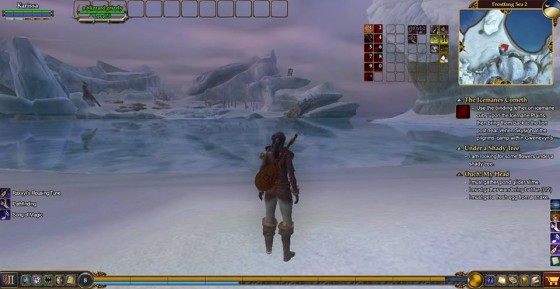
For a time, the troubadour and the dirge had nothing to distinguish them from the rest of the rogue classes, but as time went on, new outfit options were finally added to the SOE store that allowed the bards to distinguish themselves. With the addition of the player studio into the game, we finally began to see some bard specific implementations, such as the backpack that featured a sleeping roll and a lute, which was not functional but looked outstanding. Finally, the one we’d all been waiting for, was the lute that literally replaced your weapon in the appearance slot so that you could actually walk around beating monsters and other players with a musical instrument. It was for this reason that my guild members constantly referred to me as “Karissa and her mad mandolin’ every time we embarked on a raid. No seriously, that happened.
If you’re familiar with Dungeons & Dragons Online, then you probably know that it includes the bard class, which sort of brings the whole thing full circle. Rolling a bard is a tough decision in a game like DDO, because just as in EverQuest and EverQuest 2, you are taking a step back from the combat and using your abilities to help others. At some point you might find a reason to rush in and start singing, but your primary job is not only to keep others alive, but to keep yourself alive. It’s a tall order in some of the more complicated boss fights, but it can most definitely be done. That’s what barding is all about.
The Bard had humble beginnings, we can’t deny that. In fact it honestly started out as slang for ‘homeless bum’ if you want to really dig into it. Regardless, there’s something awesome about being able to travel from town to town playing your music, making people happy, and quite frankly kicking a little bit of ass from time to time. Let’s just say it: bards are awesome.
In the days since their introduction into EverQuest, the Bard has made an appearance in many different MMORPG’s including the popular Allods Online. The interesting thing about the bard is that while it is clearly meant to be a crowd control/buff class, it always seems to have the ability to tank if the player has the motivation and the ingenuity. It might not be pretty, but I’m just going to say it now: bards are insane. I’ll never forget the bard character I had in RIFT that could kill mobs from three hundred yards away with just a few plucks on his lute. Now THAT’S how you take things down. Forget sniper rifles or elemental spells, just play a few chords and watch everyone suffer.
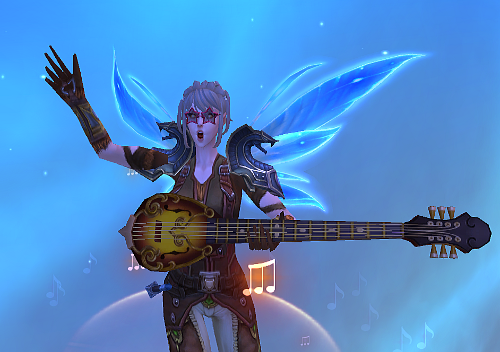
Not every story about bards was too terribly serious. One that comes to mind, and one that everyone here at MMOGames can confirm that I absolutely love to tell, is that of Fansy the Famous Bard from the old EverQuest days. Fansy was simply a bard who rolled on the old ‘no rules’ PVP server and proceeded to wreck everyone’s day by training mobs and rushing through large crowds of players until Sony Online Entertainment finally stepped in and declared that one could not train mobs in that manner unless they were properly flagged for PVP, which meant progressing to the proper level. Fansy’s tale might have been short lived, but he left a lasting impression on the MMO world.
Forsaken World took the bard class a step further by introducing a system in which you could land better attacks with more damage if you hit the right notes at the right time. Each note, being tied to a specific ability, would form a part of your rotation and perform a different type of attack, debuff, or buff. The game itself might leave a lot to be desired, but they certainly put a lot of thought into the way the bard system worked. For this reason. Forsaken World is on my top ten list of bard inclusive games.
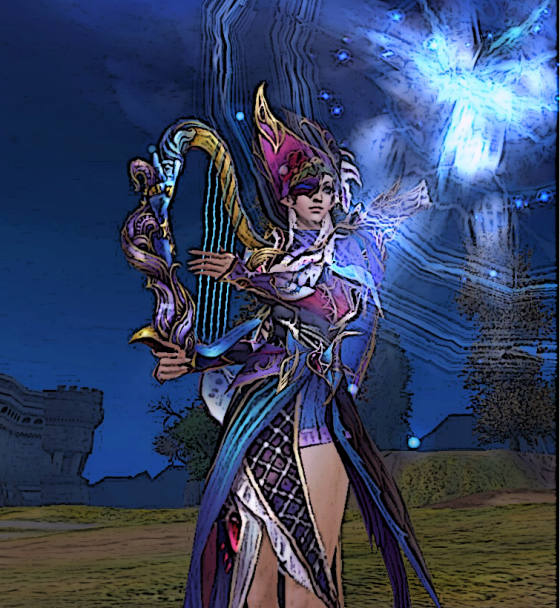
Let it never be said that Blizzard Entertainment has no sense of humor. In 2008, most notably on April Fools day, Blizzard announced a new World of Warcraft playable class, the Bard, which could ‘vanquish evil with the power of ROCK!’ The new class would feature a two-handed axe that doubled as an electric guitar, and Blizzard made a point of introducing a Guitar Hero style fret bar which would serve as the attack interface during fights. Additionally, Blizzard stated that the Wrath of the Lich King expansion would actually feature a guitar based keyboard peripheral for those who wanted to play the bard class. Yes, this happened, we’re not joking.
To further add to the joke, Blizzard announced two different class specializations for their new Bard, Metal, and Punk Rock. The abilities included:
Metal
Punk Rock
Once again, never let it be said that they don’t have a sense of humor, and honestly, shame on the people who fell for this on April 1st.
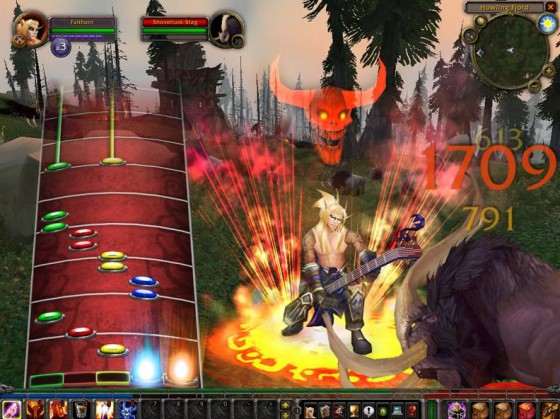
Once again, it is a severely underestimated and underplayed class, but quite frankly, you’d miss it if it were gone completely from the MMO landscape. The bard is special. Anyone can wield a sword or cast magic, but it takes a very special individual to wield a musical instrument for the purpose of both entertaining the masses and fighting evil. Bards are often forgotten and they bear the scars of their own personal journeys across the harsh terrain, through deep, foreboding dungeons, and their weathered faces, earned from a lifetime of sleeping under the stars. Maybe there will come a day when we aren’t an included class in future MMO’s, and eventually, the world might forget about us, but for now, remember that we were here, and that our songs not only entertained you, but took down the mightiest of dragons in worlds across the digital landscape. From Norrath, to Telaria and beyond, our song will always play.
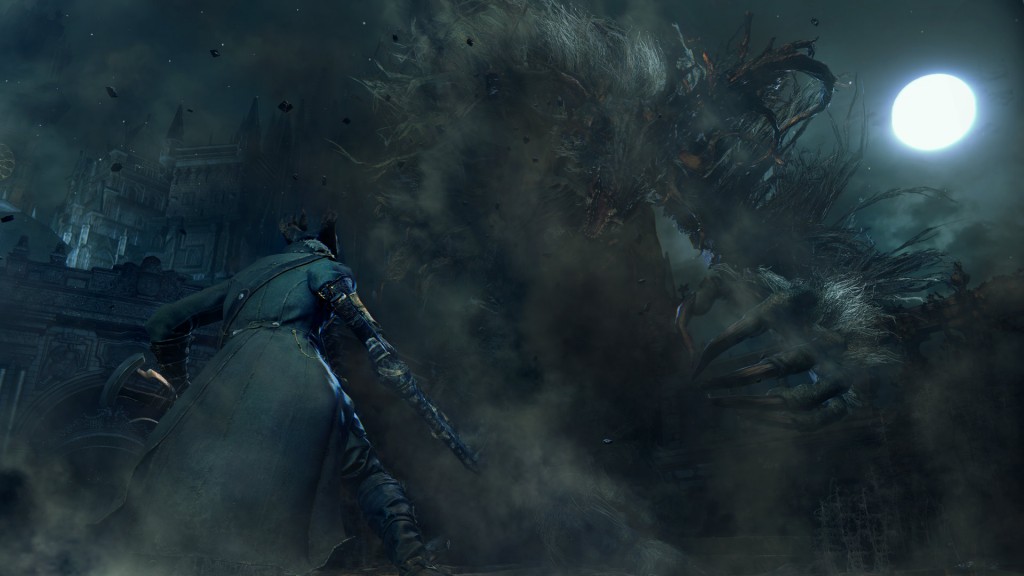

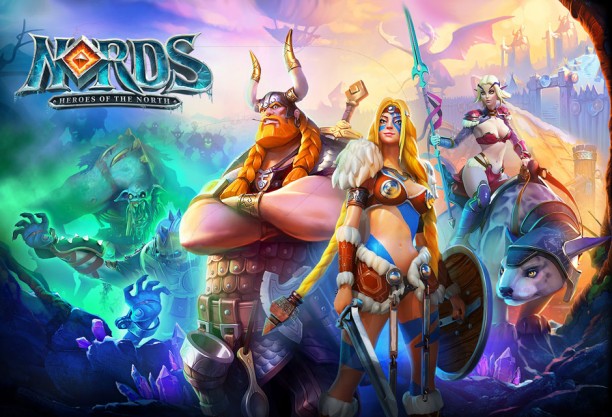

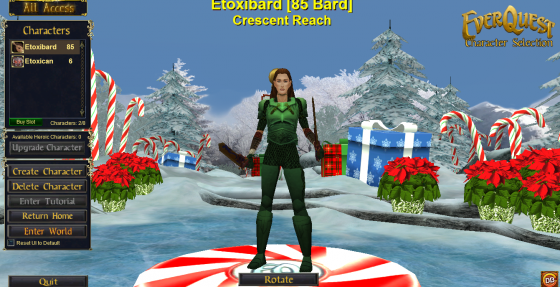 It's Frostfell Time in Everquest
It's Frostfell Time in Everquest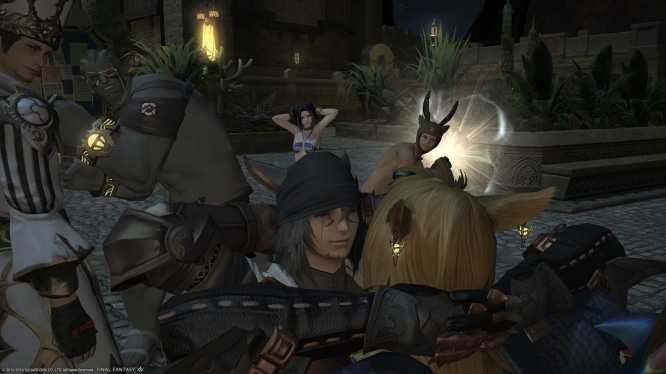 Are Guilds Still Relevant? .
Are Guilds Still Relevant? .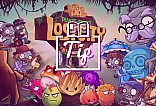 Plants vs. Zombies 2: Survive in Level 31 of The Lost City
Plants vs. Zombies 2: Survive in Level 31 of The Lost City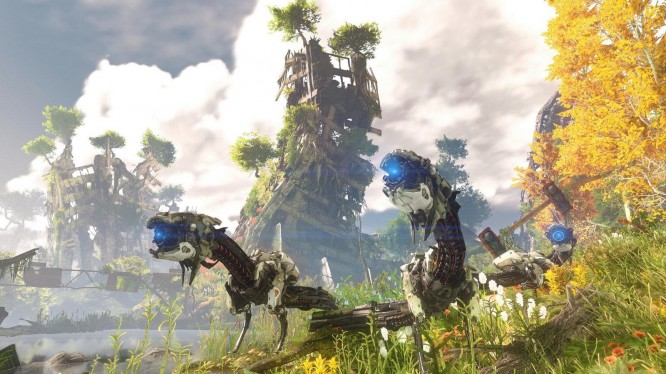 FAQ: Best Reveal At E3 .
FAQ: Best Reveal At E3 . Agar.io: How to Survive in the Browser Game
Agar.io: How to Survive in the Browser Game